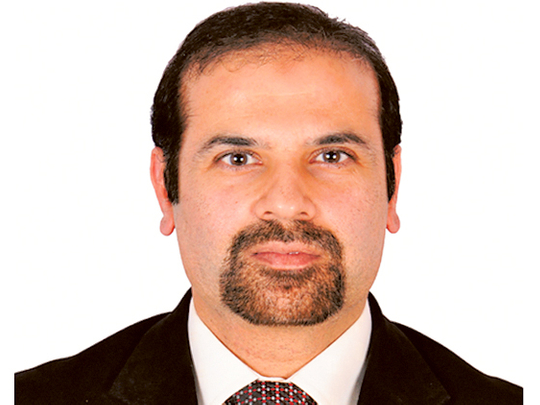
Dubai: The Mers virus attacks people suffering from chronic diseases such as diabetes, renal failure and heart disease, a specialist said and advised to observe hand hygiene meticulously.
Dr Ram Shukla, specialist, infectious diseases at Al Zahra Hospital in Sharjah, said Mers can also infect the healthy and the young in closed and prolonged contact like in a hospital as it happened to young nurses in Al Ain, but it will not affect them as seriously as those with chronic diseases.
He advised that everyone should be careful when dealing with chronic disease patients, especially those showing symptoms such as cough, cold, pneumonia-like symptoms, and if they develop high fever.
“It is important now to practise hand hygiene,” he said. Dr Shukla said training programmes should be conducted for hospital staff so that someone infected cannot slip into the ward and infect others. “There should be a higher index of suspicion at hospitals,” he said. “People should be educated about the disease,” he said.
Do hospitals have infection control systems in place?
Dr G. Y. Naro, specialist emergency medicine, Rashid Hospital, said there is nothing to be scared about at the moment. Hygiene is of prime importance. He said the large number of diabetics in the country should be extra cautious and report any infection immediately.
He said infection control is an integral part of Rashid Hospital. “There is a task force that collaborates with all wards. It is a requirement under the JCI (Joint Commission International) accreditation,” he said.
Most of Dubai’s public and private hospitals are JCI-accredited, according to the Dubai Health Authority (DHA).
What should people be aware of about Mers?
A doctor at Adnoc (Abu Dhabi National Oil Company) said the 100,000 employees are being advised through email and through its education committee on the precautions everyone should take.
“The most important is to recognise the disease,” said Dr Taha Al Hassan, family physician at Adnoc Clinic in Abu Dhabi. “Avoid direct contact with someone ill and coughing and sneezing,” he said. “There is no need to panic as all precautions have been taken to limit the number of cases,” he said.
He said the symptoms of Mers coronavirus (Mers-CoV) is high fever, sore throat and runny nose [same as in flu]. it attacks everyone, irrespective of age, and especially those whose immunity is compromised, he said.
Is there a vaccine for Middle East Respiratory Syndrome Coronavirus (Mers-CoV)?
Dr Shukla said there is no vaccine or cure for Mers coronavirus at present. “None of the three viruses [spreading across the globe] have a cure," he said. At present H7N1 epidemic is on going in China, which has high mortality and the virulent Ebola has crossed borders and spreading in West African countries.
Where did this virus come from?
A doctor in Abu Dhabi said it was not yet confirmed whether Mers originates from camels.
“There is an association with camels,” said Dr Shukla. “Camels most probably are the suspect carriers. Why they do not suffer from the disease and how they transfer the virus we do not know yet,” he said.
The camel is the “amplifier host’, he said, just as the civet cat was the amplifier host in China after being bitten by a fruit bat, he said.
Mers is similar to Sars and has a high rate of infection, and especially affects those in closed, prolonged contact with the infected, he said.
Should we be scared?
Residents have no need to panic, said a leading medical professional who has treated several of the patients infected in Abu Dhabi over the past year. “Even after two years, the world has seen only about 200 cases. Moreover, in the case of viruses that transmit easily, there are clusters of people who have interacted with one another and have been infected. We have not seen this in the case of Mers-CoV, as there are still just a handful of scattered cases,” said Dr Asim Malek, chairman for infection control and chief of infectious diseases at Mafraq Hospital in Abu Dhabi.
“Suspected patients must be taken away from crowded emergency rooms and isolated and, once the diagnosis is confirmed, medical professionals must wear medical gowns and gloves when treating the patient. Stringent adherence to these rules prevents transmission,” Dr Malek said.












